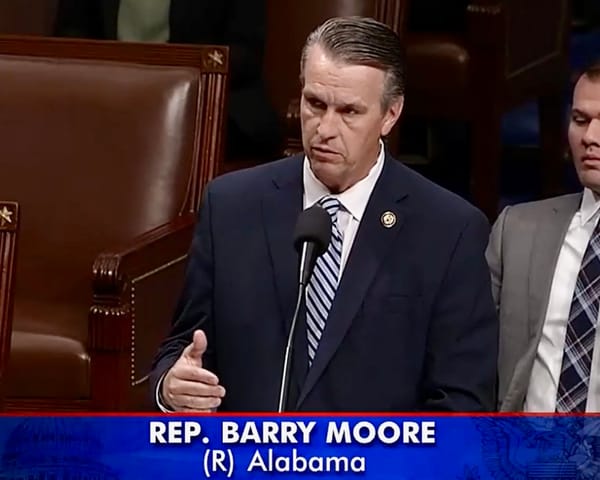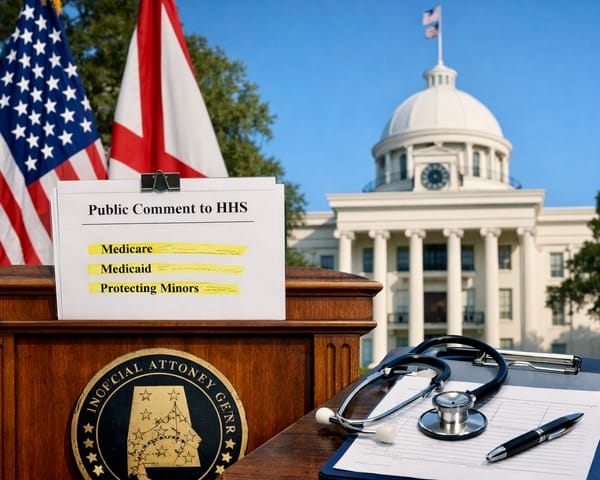Administrative Hearings Aim to Break Alabama’s Medical Cannabis Logjam
License awards will now fall under the Alabama Administrative Procedure Act

A long‑awaited series of investigative hearings, to be led by former Alabama Supreme Court Associate Justice Bernard Harwood, could soon settle the tangle of lawsuits that has kept medical cannabis out of patients’ reach for more than four years.
Gov. Kay Ivey signed Senate Bill 46 — the Darren Wesley “Ato” Hall Compassion Act — on May 17, 2021, launching the State’s medical‑cannabis program. However, no products have reached shelves, as license fights have halted the program’s rollout time and time again.
The Alabama Medical Cannabis Commission (AMCC) has voted three times on license awards, only to face immediate challenges from companies that said the process violated State rules. Earlier this year the Alabama Court of Civil Appeals ordered those disputes to move under the Alabama Administrative Procedure Act, which requires a formal, trial‑style hearing before a neutral officer.
In a written statement, the AMCC welcomed the shift:
“Alabama’s medical cannabis statute and administrative rules provide that any applicant preliminarily denied a license award by the Commission may request an investigative hearing… The Commission is anxious for applicants to have the opportunity to establish their suitability for a license in a contested case investigative hearing.”
Justice Harwood will act as that hearing officer. While he has not released a calendar, lawyers expect testimony, sworn evidence and cross‑examination — a clear break from the closed‑door scoring sessions that sparked criticism.
One of the loudest critics, Alabama Always, has pressed since December 2023 for an outside judge to review the awards. “Since December 2023, we have been in court asking for the Commission to send these license issues to an Administrative Law Judge for a hearing,” Board member Ben McNeil said. “We have full confidence that Justice Harwood will conduct this hearing process with fairness, integrity, transparency and a commitment to doing what is right under the law… A schedule for the hearings has not yet been set.”
The AMCC issues six types of permits — for cultivation, processing, testing, transport, dispensing and integrated facilities that handle seed‑to‑sale operations. Only lab testing licenses have stayed clear of litigation. All other categories remain frozen until the hearings conclude and Harwood sends recommendations back to the commission.
AMCC Director John McMillan said recently that staff are “more encouraged than we have been any time in the past,” and hinted that, if the hearings move quickly, patients could see medical cannabis before the end of 2025. Still, fresh appeals or legislative tweaks could spark new detours.
The medical literature underscores cannabis’s therapeutic value for certain health conditions. A 2017 report from the National Academies of Sciences, Engineering, and Medicine concluded that there is “conclusive or substantial evidence” supporting the use of cannabis or cannabinoids to treat chronic pain in adults, chemotherapy‑induced nausea and vomiting, and spasticity related to multiple sclerosis. Meta‑analyses of randomized controlled trials from before 2017 further confirm that cannabis preparations can reduce chronic pain, yielding moderate effect sizes on visual analog pain scales and reducing prescription drug use. High‑quality systematic reviews have also found that nabiximols (Sativex), oral cannabis extract, and synthetic THC are “probably effective” in reducing patient‑reported spasticity and central neuropathic pain in people with MS.
The literature affirms that for some people and conditions, cannabis can offer relief when other treatments fall short. For now, all eyes are on Justice Harwood’s docket—and Alabamians have new hope that the State’s medical cannabis program can finally begin to bring these therapeutic seed-bearing plants to the patients who need them.




